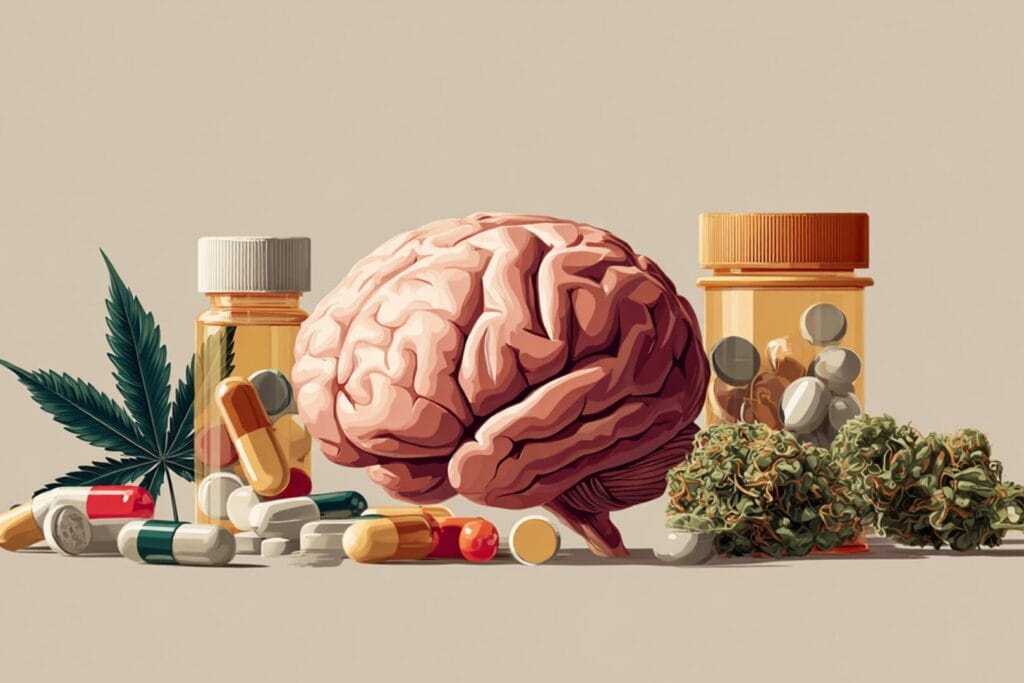What Is Emotional Wellness?
Emotional wellness is the ability to successfully and efficiently understand one’s emotions, manage life’s stressors and challenges, and adapt to change.
Why Is Understanding Emotional Wellness Important?
Understanding this type of wellness is essential to a healthy life, as it can increase mindfulness, self-awareness, and flexibility. Life will always bring stressors and challenges, but successfully navigating these issues will help with happiness and satisfaction.
Being more mindful of emotions provides the opportunity to work on and learn how to regulate thoughts and feelings healthily. As a result, the ability to bounce back from difficult situations, stress, and conflict becomes more manageable. For instance, patients in addiction treatment who know how to safely and effectively navigate and communicate their emotions may have a better chance of lasting recovery. Stronger emotional health can lead to more successful therapy sessions, a better outlook on treatment and recovery, and an increased ability to adapt to a new, healthier lifestyle.
Stress and Mental Wellness
The inability to properly manage stress can significantly impact mental health. One study found that more psychiatric patients endured stressful life events compared to individuals without psychiatric issues.1
Impact of Poor Emotional Wellness
Poor emotional wellness impacts many aspects of life, such as physical health, work, academics, and the ability to complete daily tasks. Thus, focusing on emotional well-being is imperative to a healthy and thriving life. The most common ways poor wellness affects life include:
Lower Immunity and Increased Illness
Stress affects the body in many ways, and those who struggle with it are at an increased risk of illness. For example, 53% of patients with acute myocardial infarction (MI), also known as heart attacks, reported high levels of stress compared to 20% of those without MI who reported high levels of stress.2
Difficulties at Work
Work is one of the most significant stressors in many people’s lives, making the ability to navigate work-related stress integral to overall health. Poor wellness can greatly influence how stress and issues at work impact mental health and daily life. According to a national survey, 62% of employees reported having high levels of stress, with extreme fatigue and feeling out of control.3
Trouble Concentrating
Having difficulties concentrating is another impact of poor emotional wellness. The inability to acknowledge, process, and handle negative emotions can cloud the mind and consume people’s thoughts throughout the day. Mindfulness is one practice that can help with concentration.
Benefits of Strong Emotional Wellness
There are numerous benefits for this type of wellness; many of these positive effects will be detailed below.
Improved Relationships
Strong emotional wellness can improve relationships with friends, coworkers, support group members, family members, and significant others. Living in the present, understanding and acknowledging perspectives, and handling negative emotions are all advantages of good emotional health and excellent foundations for building healthy relationships.
Increased Productivity
The ability to manage emotions and difficult situations can increase problem-solving skills and productivity. Furthermore, good emotional well-being leads to a more positive mindset, improving focus and motivation to achieve more life, such as school, work, and personal goals.
Reduced Stress and Illness
Research suggests that chronic stress can suppress the body’s ability to maintain proper immune function. Improving emotional health and well-being helps people gain a better understanding of their emotions and how to manage adverse situations, such as stress and anxiety, successfully. As a result, one can reduce stress and boost their immune system.4
How to Cultivate Emotional Wellness in Recovery
Substance abuse disorders bring with them their own kind of stress and difficulties. Many people find themselves withdrawing from family and friends, solely focusing on acquiring and consuming their substance of abuse, and struggling with the side effects of addiction, such as depression, anxiety, mood swings, and fatigue. Cultivating a strong sense of emotional wellness during treatment is a crucial part of the recovery process.
Getting Out Into Nature
Immersing oneself in nature can generate several positive emotions, such as calmness, creativity, joy, and concentration. Being outdoors and surrounded by nature can help individuals feel grounded and find peace, allowing them time to think, reconnect with emotions, and breathe fresh air.
Connecting With Loved Ones
A strong social network of family, friends, or members from support groups provides a sense of belonging and support. Connecting with loved ones and building and maintaining relationships creates a support system to help guide patients during their recovery and remind them that they have people in their lives who care.
Meditating
Meditating is one of the most popular ways of creating and improving emotional health and wellness in recovery. Mindfulness and meditation can encourage focusing on the present, increase self-awareness, and expand the mind.
Going to Therapy or Counseling
A crucial part of treatment is attending therapy. Mental health professionals are trained and experienced in helping individuals with life struggles, including mental health disorders, substance use disorders, grief, stress, work, and relationships. Therapists can offer personalized advice, healthy coping mechanisms, beneficial activities, and skills needed to improve quality of life.
Getting Quality Sleep
Sleep is often overlooked when cultivating emotional wellness, but it’s important to remember that a lack of sleep impacts emotional, mental, and physical health. Sleep can increase concentration, cognitive function, and emotional stability, significantly aiding recovery, such as managing relapse risk factors in daily life.
Invest in Your Emotional Health at San Diego Detox
Emotional wellness affects many aspects of life, including physical, mental, and social well-being. Therefore, focusing on improving emotional health is key to improving overall health and quality of life. If you have a mental health or substance use disorder and need treatment and help to strengthen your wellness levels, reach out to San Diego Detox today.
What We Offer
Our recovery center offers a variety of evidence-based treatment options for addiction and mental health conditions, such as cognitive behavioral therapy, dialectical behavior therapy, family therapy, and art therapy. Our compassionate and skilled team will develop a personalized treatment plan and provide twenty-four-seven care to ensure all your needs are met.
If you are struggling with a mental health disorder, substance use disorder, or dual diagnosis, we will be with you every step of the way to help you heal and recover. At San Diego Detox, no one has to face recovery alone. Contact us today to receive the help you deserve.






